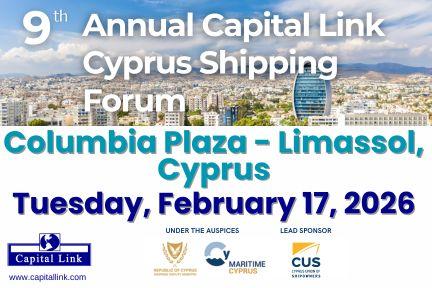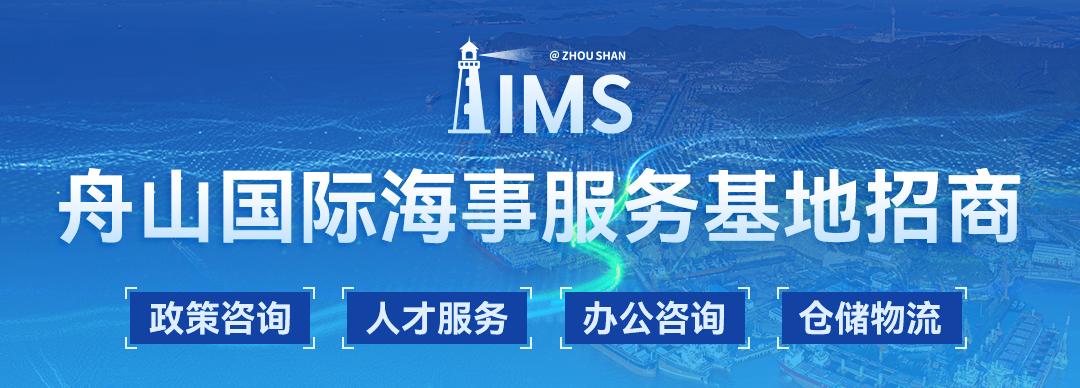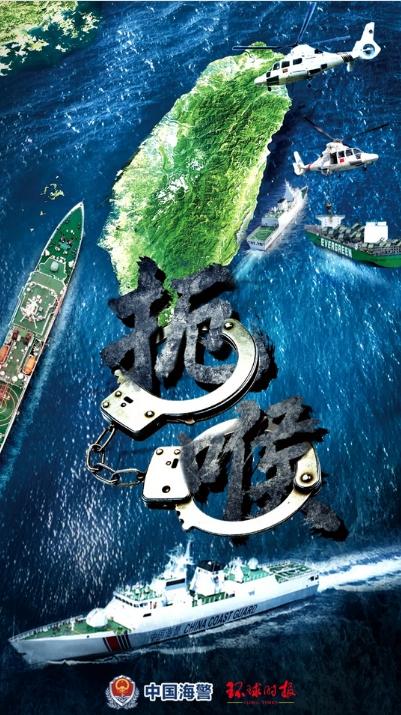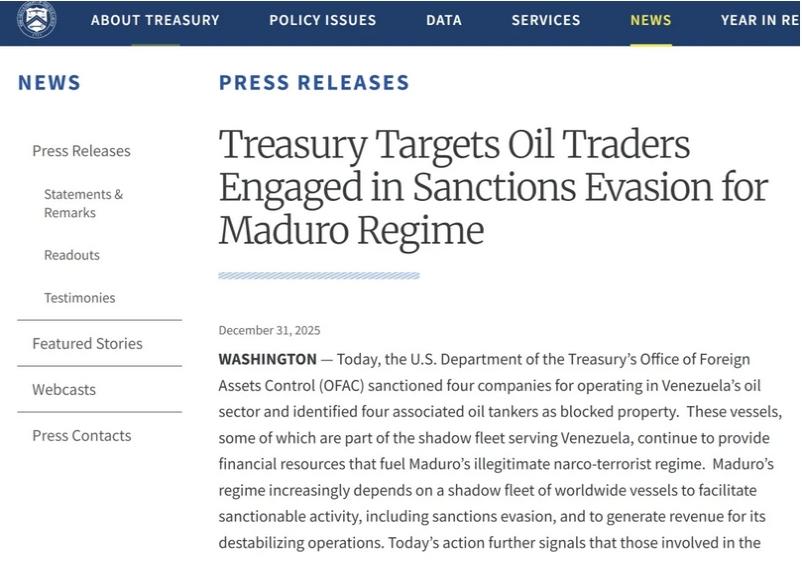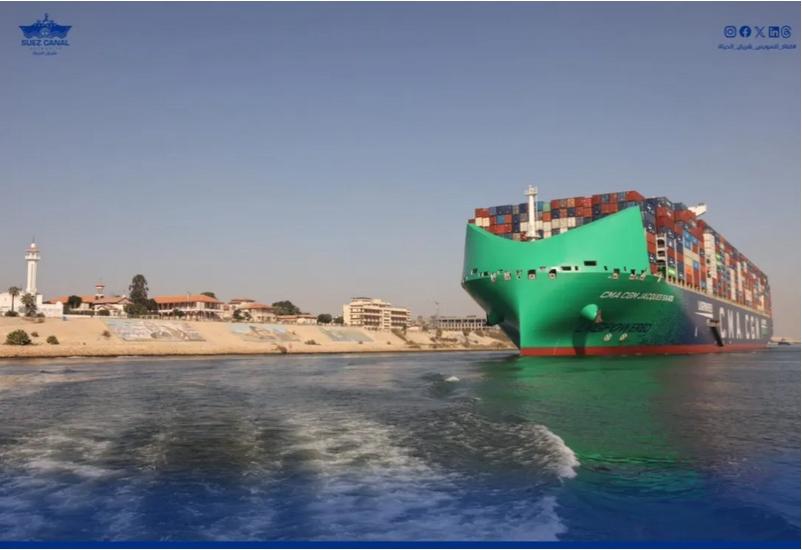
船旗国的要求规定
International law requires all ships using the high seas to possess a national character. A ship without nationality will not enjoy protection under international law and will be subject to seizure. In practice, a ship possessing no nationality may be unable to engage in international trade as ports will deny entry to such ships or detain them until they have received satisfactory evidence as to the ship's nationality.
国际法规定要求所有在公海航行的船舶必须具有国家的属性。如果船舶没有国籍,将不能享受国际法的保护,并可能会被扣押。在实践中,船舶不拥有国籍是可能无法从事港口之间的国际贸易,或被拒绝入境或者扣留,直到港口当局收到令其满意的船籍证据。
The national character of a ship is – as a general rule – attained by registration of the ship under the laws of a particular country. Once registered, the ship will have the right to fly the national flag of the country in which it is registered.
船舶的国家属性是指,按照一般规则,船舶按照某一个特定国家的法律通过注册登记来实现。一旦登记注册,船将享有权利悬挂该注册国家的国旗。
船旗国的选择
The key issues concerning how and where ownership of the ship should be held, and where the ship itself should be registered or “flagged”, will often be addressed by the buyer before or soon after it has decided to buy a particular ship. The choice of the ship's flag will also be of significant concern to the buyer's financiers. The following paragraphs consider the flagging options open to buyers, and some of the factors which they and their financiers may take into account when deciding where the ship (and mortgages over the ship) should be registered.
关于船舶将如何拥有的其所有权或者拥有何地的所有权,以及船舶登记注册地或者船旗国等这些关键的问题,通常是由买方在确定购买某船舶之前或者之后不久进行安排。对于买方的融资银行也十分关注船舶船旗国的选择。接下来这一段将讨论买方如何自由选择船旗国,以及在确定船舶注册登记(和抵押)时,买方和他的融资人可能需要考虑的一些因素。
The buyer will be free to choose between the flags of the traditional maritime nations (which may require genuine links to be present between the state and the nationality of the ship's owners or managers) and the flags widely known as “flags of convenience”. These may be defined as flags of countries which are available to ships that are beneficially owned and crewed by persons other than the nationals of those countries. They are known variously as “flags of convenience” (frequently abbreviated to “foc”), “open flags”, “free flags” or “flags of necessity”, and the primary characteristic that distinguishes them from the traditional flags is that, in general, the shipping, corporate and tax laws of a flag of convenience jurisdiction will be framed specifically so as to be welcoming and accommodating to domestic and foreign shipowners and also to their financiers.
Flag of convenience administrators are of course aware of the control which financiers may exercise over a choice of flag, and the ship mortgage laws of the major flags of convenience are generally acceptable to most of the leading ship financiers.
在传统海洋国家(这可能要求该国与船舶所有人或者经营人的国籍之间,当前存在有真正的联系)和被广泛称之为‘方便旗’国家之间,买方将可以在自由进行选择。这些被定义的方便旗国家是用于控制占用船舶和安排配备其他国家的船员等利益而设定的。它们有各种不同的名称,如‘方便旗’(经常缩写为FOC)、‘开放船旗’、‘自由船旗’以及‘必要船旗’。所以,一般来说,它们区别于传统船旗国的基本特征在于,方便旗管辖权下的航运法律、公司法律和税收法律等组织架构非常特别,因而,受到国内船东和外国船东以及他们的融资人欢迎和接纳。
当然,方便旗主管机关也意识到要控制融资人选择方便旗国家,然而,主要几个方便旗国家的船舶抵押法律一般也为大多数的重要的船舶融资人所接受。
Alternatively, a buyer may prefer to register its ship in one of the many secondary registers which have been created with a view to offer shipowners certain benefits of flag of convenience registration (usually in the form of less stringent conditions concerning eligibility of ships, and ownership and crew nationality) while retaining some linkage between the management and operation of the ship and the underlying nation state.
或者,买家也可能更愿意在允许二次登记的国家进行注册船舶,产生双重登记的目的是,既能提供给船东方便旗登记注册方面的好处(通常,船舶身份资格、所有权和船员国籍等条件,在形式上不是那么严格),又能保留船舶管理和船舶经营与主要国家之间的联系。
In the further alternative, in certain circumstances it may be possible for a buyer to achieve the benefit of two flags by a process known as parallel registration. Typically, parallel registration arrangements will involve:registration of ownership in the ship, and of any security interests in the ship, under the original flag (called the “underlying flag”) selected by the buyer;the buyer bareboat chartering the ship to a charterer incorporated or resident in another flag state and charterer's registration of the ship under the flag (the “parallel flag”) of that second state;the authorities of the underlying flag state suspending the right of the ship to fly its flag, and consenting to the ship's registration under the parallel flag, for the duration of the bareboat charter;the authorities of the parallel flag state assuming full jurisdiction over the ship, and permitting the ship to fly its flag, for the duration of the bareboat charter; andthe ship's parallel flag entry coming to an end upon the expiry or termination of the bareboat charter, at which point in time the ship's flag will revert to the underlying flag.
在某些情况下,对于买方,另外一种选择可能是,通过称为‘平行登记’的方法来获得双重船旗方面的利益。典型情况下,‘平行(双重)登记’的安排将包含以下内容:
(1). 由买方选择在原船旗国(称为‘主船旗国’)进行船舶所有权的注册,和担保物权的登记;
(2). 买方把船舶光船租赁给居住在或者以公司性质位于另一个船旗国的承租人,承租人在该第二个船旗国再次登记注册船舶(平行登记);
(3). 主船旗国主管机关暂时中止船舶悬挂该船国旗的权利,并同意该船舶在光船租赁期间以平行(双重)登记的形式进行注册;
(4). 在光船租赁期间,双重(平行)登记的船旗国主管部门对船舶拥有全部管辖权,并允许该船舶悬挂其国旗;
(5). 当光船租赁到期或者终止时,船舶平行(双重)登记也宣告结束,这时,船舶的船籍重新回到主登记船旗国。
有关船舶身份资格的船旗国规定
Many traditional maritime countries limit ownership of ships registered under their flag to their own citizens and to companies which qualify by passing defined “eligibility” tests. A central feature of most flags of convenience and secondary flags is that the beneficial owners of a ship (and in some cases, the registered owners) need not be nationals of, or domiciled in, the country of the ship's registry in order to register the ship under its flag.
许多传统的海洋国家都把在其旗下登记注册的船舶所有人身份限制为本国公民和通过所谓的‘资格’标准并具有合法资质的公司。大部分方便旗国家和(允许)双重登记的船旗国一个主要特点是,船舶的受益所有人(在某些情况下,注册船东)不必是该国的公民,或居住在该船舶登记的国家。
Some flag states impose age limits on ships but, in many cases, these age limits may be waived in certain circumstances (e.g. if the ship passes a special statutory inspection carried out by an authorised inspector on behalf of the prospective flag state authority).
有一些船旗国对船舶的年龄加以限制,但在很多情况下,都放弃或免除这些船舶年龄的限制(例如,如果船舶通过代表预期的船旗国主管机关授权的检验员所进行的一种特殊的法定检验)。
优先考量船舶安全
All those involved in shipping – be they seafarers, shipowners, ship managers, ship operators, charterers, cargo owners, underwriters, P&I clubs, Classification Societies, flag authorities, port state authorities or mortgagees – have an interest in promoting the safety of life and property at sea. The buyer and its financiers will wish to be satisfied that the chosen flag state has ratified all of the relevant International Safety of Life at Sea (“SOLAS”) Conventions and that the flag state authorities have a good record in relation to enforcing compliance with these Conventions.
所有海运涉及到的——无论是船员,船东,船舶管理者,船舶经营人,承租人,货主,保险人,保赔协会,船级社,船旗国主管当局,港口国主管机关或抵押权人——都非常关注提高海上的人命安全和财产安全。买方和他的融资人都希望船舶符合其选择的船旗国已经批准的《国际海上人命安全公约(SOLAS)》的所有相关内容和船旗国主管机关具有强制执行的这些公约的良好记录。
The buyer will usually consider all aspects of the costs of registering in a given jurisdiction, down to relatively minor costs – such as the actual cost of initial registration under a given flag, the continuing annual cost of maintaining the registration and the cost of compliance with flag state regulations.
买方通常会考虑在规定的管辖权范围内各个方面的注册费,并把它降至一个相对低的水准——例如, 在给定船旗国初始登记的实际费用,维持登记所花费的持续年度费用以及满足船旗国规定所产生的费用。
In practice, many reputable shipowners voluntarily establish and adhere to inspection, maintenance and repair standards that are far higher than those contained in classification, convention and flag state rules. But other shipowners may be aware that the maritime authorities of certain flag states do not exercise effective supervision over the ships bearing their flags because they lack both the financial capability and the political will to do so. Such shipowners may also be aware that certain flag state authorities have grasped the causal links between minimising the shipowners' costs (by adopting low standards of enforcement and by discounting registration fees and flag survey costs) and increasing the “market share” of the flags in question.
In an ideal world, flag states would compete with each other by increasing standards of service but in the real world some states seek to compete by making less strenuous demands in relation to standards of supervision and enforcement. This is an issue which mortgagees must keep in mind when considering buyers' flagging plans, particularly if buyers appear to make a practice of hopping between registers.
在实际操作中,许多著名的船东自愿设立并坚持检查,保养和维修的标准,它们都远远高于船级社、国际公约和船旗国规则所制定内容。但是,其它一些船东可能意识到某些船旗国海事主管机关不可能有效地监督船舶所具有的船旗国的性质,因为他们既无经济能力也无政治意愿去这样做。这些船东也可能知道船旗国某些主管机关已经明白在减少船东支出成本(通过采取较低的执行标准、减免登记费用以及船旗国的检验成本)和增加其船旗国的‘市场份额’之间的因果关系。
在一个理想情况下,每一个船旗国都会相互竞争以提高服务的标准,但在现实社会中,一些国家却试图通过降低相关的监督标准和执行标准等要求进行竞争。当考虑买方注册登记计划时,抵押权人需要铭记这一问题,特别是买方经常在不同的注册国家跳来跳去的情况。
国际运输工人联合会
The International Transport Workers' Federation (or “ITF”) is a body uniting and representing transport workers' trade unions from around the world which, with some vigour, pursues a campaign relating to the proper treatment of seafarers serving on flag of convenience ships.
国际运输工人联合会(或‘ITF’)作为团结和代表全世界运输工人公会的团体组织,经常积极参加并从事各种活动,以提高方便旗国家船舶上服务的船员的适当的待遇。
According to the ITF, their flag of convenience campaign has two principal objectives. The first is a political campaign designed to establish by international governmental agreement a genuine link between the flag a ship flies and the nationality or residence of its owners, managers and seafarers, and so eliminate the flag of convenience system entirely. The 1958 Convention on the High Seas and the 1982 United Nations Convention on Law of the Sea each recognises that there should be a genuine link between state and ship and, in particular, that every state should effectively exercise its jurisdiction and control in administrative, technical and social matters over ships flying its flag. However, neither Convention defines what is meant by the expression “genuine link”.
The 1982 Convention seems to approach the matter on a post-registration footing rather than in terms of preconditions to registration. In other words if, after registration of a ship under a flag of convenience, that flag effectively exercises jurisdiction and control in administrative, technical and social matters over that ship, the genuine link requirement will be satisfied. The 1986 United Nations Convention on Conditions for Registration of Ships does seek to define what is meant by the genuine link between a ship and its flag of registration.
However, the 1986 Convention is not yet in force and, even if it is eventually brought into force, it is unlikely that the Convention would result in the elimination of the flag of convenience system. That is because, in the areas of ownership, manning and management of ships and ownership and management of shipowning companies, the 1986 Convention leaves so much of the detailed implementation of its articles to the discretion of the individual contracting states that it would be possible for states to frustrate the object of the “genuine link” articles without contravening their terms.
按照ITF的说法,其推动(抵制)方便旗活动有两个主要的目的。首先是一项政治活动,通过国际政府间协议,旨在确立船旗国与船舶所有人、管理者和船员的国籍或居住地之间的真正联系,因此完全消除方便旗制度。《1958年日内瓦海上公约》和《1982年联合国海洋法公约》都各自承认国家与船舶之间应当存在有真正的联系,特别是每一个国家都应对悬挂其国旗的船舶,在行政、技术和社会事务上有效地行使其管辖权和控制权。然而,并没有一个公约定义了所谓‘真正的联系’这一术语的含义。
《1982年海洋法公约》似乎是立足于注册登记之后的关系处理此问题,而不是把它看作注册登记的先决条件。换句话说,如果,船舶在方便旗国家登记注册后,船旗国能够在行政上、技术上和社会事务上对船舶有效地行使管辖权和控制权,即是满足‘真正联系’的规定要求。《1986年联合国船舶注册登记条件公约》也没有试图去定义船舶和登记国之间的所谓的‘真正联系’的含义。
然而,《1986年船舶登记公约》尚未生效, 即使是最终生效,该公约也不可能会导致方便旗制度的消除。这是因为,在船舶所有权、船舶配员和管理,以及船东公司所有权和公司经营管理等领域,《1986年船舶登记公约》赋予各个缔约国保留其自由裁量权去具体实施公约的条款,这些国家将很可能使‘真正联系’这一条款的目的失效落空而又不违反公约条款。
The second objective of the ITF is an industrial campaign designed to ensure that seafarers working on flag of convenience ships, whatever their nationality, have the right to effective trade union representation, benefit from decent living and working conditions, and are protected from exploitation by their employers.
ITF的第二个目标是一项船舶行业的活动,旨在确保在方便旗船舶上工作的船员,无论他们是什么国籍,都有权向工会有效的表达申述,享有体面的生活和工作条件的好处,以及免于他们受到其雇主的剥削。
One physical manifestation of the ITF flag of convenience campaign is a document known as the “blue certificate”, which is issued by the ITF to flag of convenience shipowners who have signed an ITF-acceptable agreement. This serves to notify seafarers' and dockers' unions around the world that a ship's crew is covered by an agreement which meets ITF standards. Representatives of ITF affiliates regularly visit ships in port to check whether they are covered by valid ITF-acceptable agreements and to see whether the shipowners are complying with such agreements.
ITF(抵制)方便旗运动的一个实际表现形式是被称为‘蓝色证书(蓝卡)’的证明,它是由ITF签发给接受并签署ITF协议的方便旗船东的一个文书凭证。它是用来向全世界船员工会和码头工会证明该轮的船员是受到满足ITF标准的劳动合同的保护。ITF附属机构的代表会定期拜访在港船舶并检查他们是否有效地受到ITF所接受的劳动协议的保护以及查看船东是否遵守这些协议。
When deciding whether to declare a flag as a flag of convenience, the ITF will take into account several different factors including:
the degree to which foreign-owned ships are registered on the flag;
the issue of whether the flag state is able and willing to enforce international minimum social standards on ships wearing its flag (including respect for basic human and trade union rights, freedom of association and the right to collective bargaining with genuine trade union organisations);
the social record of the flag state as determined by the degree of ratification and enforcement of International Labour Organisation (“ILO”) Conventions and Recommendations; and the safety and environmental record as revealed by the ratification and enforcement of International Maritime Organisation (“IMO”) Conventions and revealed by Port State control inspections, deficiencies and detentions.
The ITF Fair Practices Committee maintains a list of the flag states which the Committee has designated as flags of convenience.
在决定宣布一个国家是否为方便旗国时,ITF将考虑下列几种不同的因素,包括:
(1). 在该船旗国注册登记的船舶,外国船东对其控制的程度;
(2). 问题是该船旗国是否能够并愿意对悬挂其船旗的船舶执行国际上最低的社会标准 (包括尊重基本的人权和工会权利,结社自由以及与真正的工会组织集体谈判的权利); (3). 通过批准和实施国际劳工组织(ILO)公约和推荐标准的执行程度来判断该船旗国的社会福利记录;
(4). 通过批准和实施国际海事组织(IMO)公约和港口国控制之检查、缺陷和滞留所披露的安全和环境记录。
ITF公平事务委员会一直保持更新被该委员指定为方便旗的船旗国名单。
船舶配员的规定要求
One of the main operating costs of a ship is the crew wage bill, and in the past the ability to hire crew from low cost labour markets gave flag of convenience and secondary flag shipowners a significant cost advantage over national flag owners who were not able to pursue similar crewing policies. But there may be limitations on the ability of shipowners to hire crew with the lowest labour costs available.
Many nations for strategic and employment reasons require ships registered under their flags to have at least some of their nationals on board.
Flag of convenience and secondary flag ships crewed by inexperienced or poorly trained seafarers may be difficult or expensive to insure, and difficult to trade, because of the adverse safety implications. Against this, shipowners would say that the near universal acceptance of the Standards Relating to Training, Certification and Watchkeeping for Seafarers (“STCW”) Convention should mean that the necessary minimum quality standards are widely understood.
National and international labour union pressure can give rise to significant problems and, as a result, inexpensive crewing will be feasible only to the extent that it will not be likely to result in the international labour unions taking action against the relevant ship in the countries to which she trades.
The Maritime Labour Convention 2006 (“MLC”) which sets out seafarers' rights to decent working conditions on board ships of all flags, updates previous international maritime labour standards and creates a new certification and inspection regime to enforce such standards.
Ships of any flag, regardless of whether their flag states have ratified the MLC, will be subject to inspection in the ports of any country that has ratified the MLC and may be detained if they do not meet the required MLC standards.
Entry into force of the MLC requires ratifications by at least 30 states controlling a minimum of 33% of the world's tonnage. As of August 2012 the Convention was ratified by 30 states representing about 60% of the world's tonnage. The Convention will therefore enter into force on 20 August 2013 – one year after the 30th ratification.
其中一个主要的船舶经营成本是船员的工资。而在过去,从低成本的劳动力市场雇用船员的能力赋予方便旗船东和双重登记的船东明显的成本优势,相比较在本国登记的船东却不能够享有类似的配员政策。但是船东雇佣船员的能力,在现有的最低劳动力成本方面还有很多限制。
(1). 许多国家出于策略和就业上的原因,要求在该国登记的船舶至少有一些自己本国的船员在船。
(2). 方便旗和双重登记船舶上的船员经验不足或缺乏训练,因为不利的安全问题,可能很难投保或保费昂贵,或者很难从事这一行业。对此,船东可能会说,几乎普遍接受的《海员培训、发证和值班标准国际公约(STCW)》,应该是船员所必要的最低质量标准,并已是得到广泛地理解。
(3). 来自国家和国际工会组织的压力可能会引起严重的问题,因此,这只要不可能会招致国际劳工组织针对在某些国家营运的船舶采取(制裁/抵制)行动,在某种程度上,廉价的船员将是可行的。
(4). 在《2006年国际海事劳工公约( MLC)》中规定了在所有船旗国船上的船员享有体面工作条件的权利,更新了以前的国际海事劳工标准,为执行这些标准,并设立了一套新的认证和检查制度。任何船旗国的船舶,不论其船旗国是否已经批准了《MLC公约》,在已批准《MLC公约》的任何国家,都将受到港口的检查,并且,如果它们不符合《MLC公约》规定的标准,有可能会被滞留。要求最少控制世界33%总吨位以及至少的30个国家批准,《MLC公约》才能生效。截止到2012年8月,已由30个国家批准该公约,并代表着约60%世界总吨位。因此,在第30个国家批准一年后,公约将于2013年8月20日生效(目前已生效)。
课税及其他事项
No corporation, income tax or capital gains tax is payable in respect of the earnings, or capital gains realised on the sale of ships owned by companies resident in a fairly wide range of countries which have acceptable ship financing flags.
在可被接受船舶融资的船旗国,其中相当范围的一些国家,对位于该国的公司所拥有的船舶进行买卖,就变现所获得利润,或者资本收益方面,没有公司支付这些收入所得税或资本增值税。
The importance of not taxing income or capital gains derived from ships registered under the flag of the jurisdiction in which the owning companies are incorporated is readily apparent. But it is also important that the jurisdiction in question does not tax the income or gains deriving from ships registered under other flags or that it grants at least an equivalent exemption to ships registered under the laws of those countries that have equivalent exemption provisions in their tax laws.
不对在船旗国管辖权限内登记注册的船舶课征收入所得税或者资本增值税,其重要性是显而易见的。但,同样重要的是,有关管辖权国家对在其它船旗国登记的船舶也不课征收入所得税或资本增值税,或者,根据其它一些国家的税务法案中同等的税收豁免条款,至少给予同等的税收豁免。
However, this freedom from taxation may not extend past the shipowning or holding company in the low-tax area. It is the residence of the beneficial owners of these companies that will decide whether ultimately their gains and profits are free from tax. For instance, in many parts of the world, parent companies are ultimately taxed on the profits of their subsidiaries no matter where those subsidiaries are incorporated. Normally, tax already paid is taken into account but where no tax has been paid there are no deductions.
然而,这种税收特权可能无法延伸到低税率地区的前任船东或原控股公司。正是这些公司的受益船东的居住关系将最终决定他们的收益和利润是否免于征税。举例来说,在世界上许多地方,无论它们附属公司位于何处,其母公司都将会因附属公司的利润而缴纳税收。通常情况下,会考虑到已经缴纳税款的事宜,但若没有缴纳税款,则利润不会扣除。
Many of the traditional maritime nations (including a number of countries in the European Union) have introduced incentive schemes in the form of tonnage tax regimes. These regimes, which are different to the tonnage fee registration systems operated by many flags of convenience, are designed to enable companies to determine their taxable profits at fixed rates according to the tonnage of their ships rather than by reference to their business results. Several of these regimes have proved to be very popular with the shipping community. This is because they may have the effect of reducing the levels of taxable profits and also because they provide advance certainty and greater clarity regarding levels of taxation and liabilities to tax. This may simplify tax planning and the preparation of corporate tax returns, and in certain jurisdictions cross-border joint ventures may be facilitated.
在很多传统的海洋国家(包括许多欧盟的国家)都推出了吨税制度形式的激励计划。这些制度,是不同于由许多方便旗实施的登记吨位收费制度,旨在使公司按照他们船舶的吨位,以固定的利率,确定他们应缴纳的利润所得税,而不是参照他们的营业收入。其中一些制度在航运界已被证明非常盛行。这是因为,就税收标准和纳税义务而言,这可能有减少他们所得税的征收标准的作用,还因为,这是为他们提供了预期的确定性与更大的透明性。这可以简化税收的计划安排与企业纳税申报的准备程序,以及在某些司法管辖范围内,跨境合资企业可能会更加便利。
海运圈聚焦专栏作者 魏长庚船长
魏长庚船长一直热爱海商法(重点是英国海商法)的学习,并致力海商法的翻译工作(包括Informa出版的Bill of Lading(提单),Laytime and Demurrage(装卸时间与滞期费)等书籍。魏长庚船长目前正在寻找有意向合作翻译上述书籍的人选,有兴趣的请与魏长庚船长联系(微信号CaptWei)。

 2016-09-01
2016-09-01 1902
1902 





